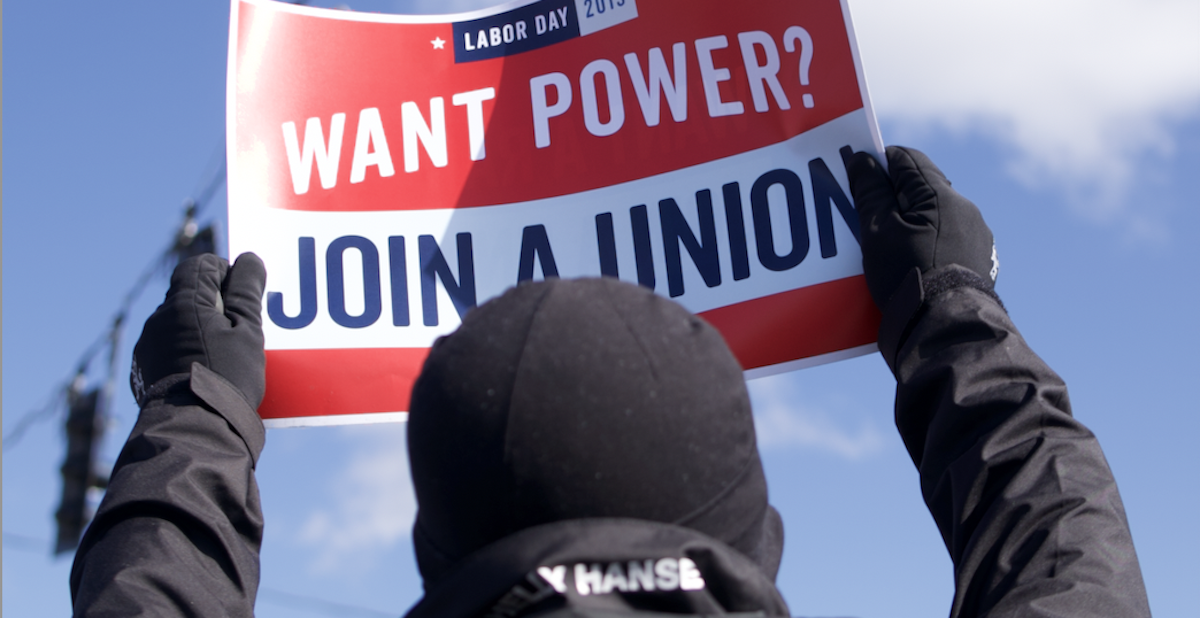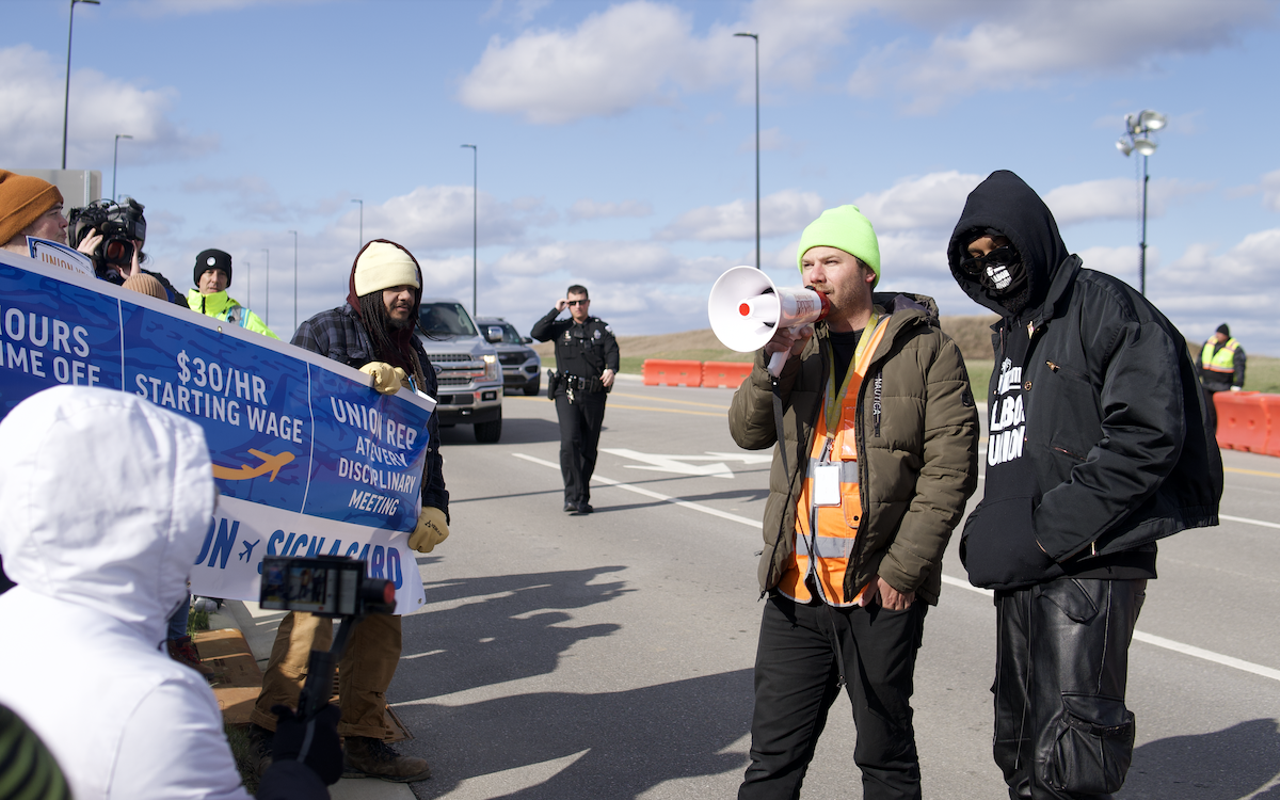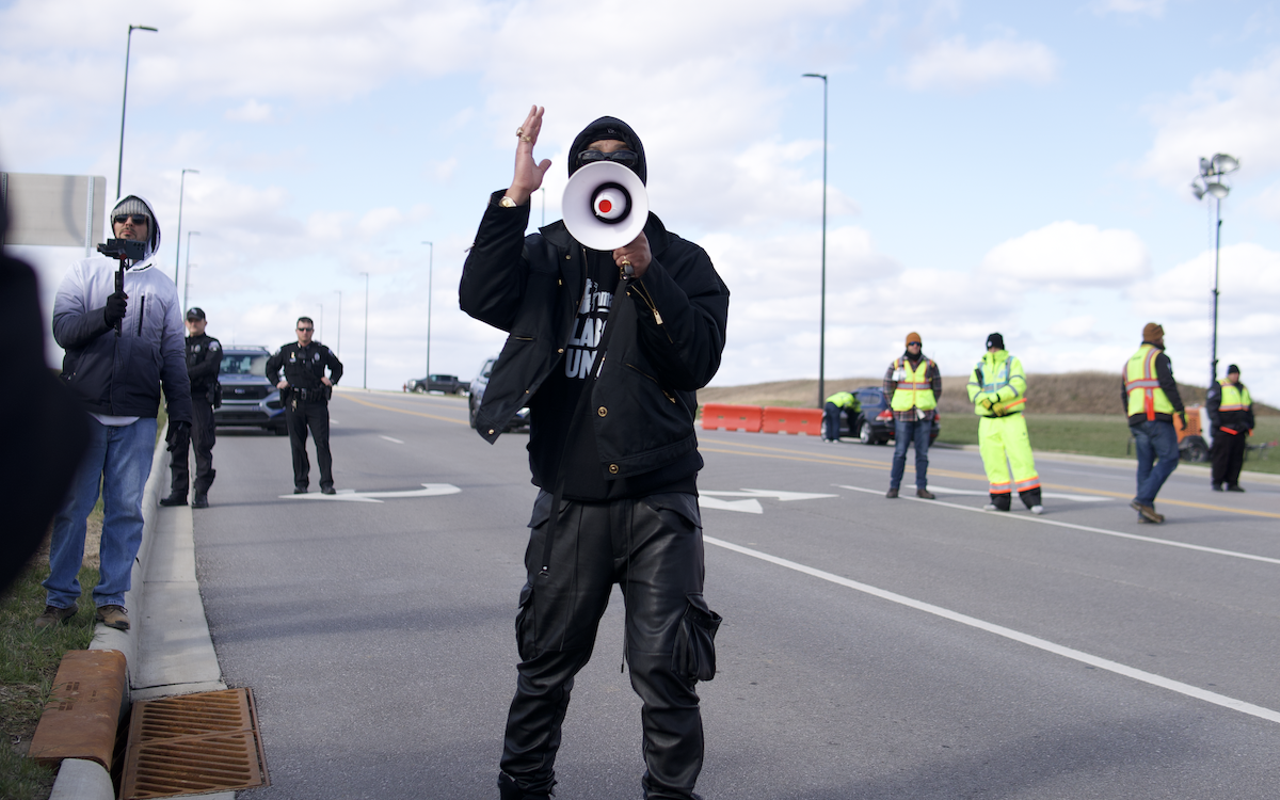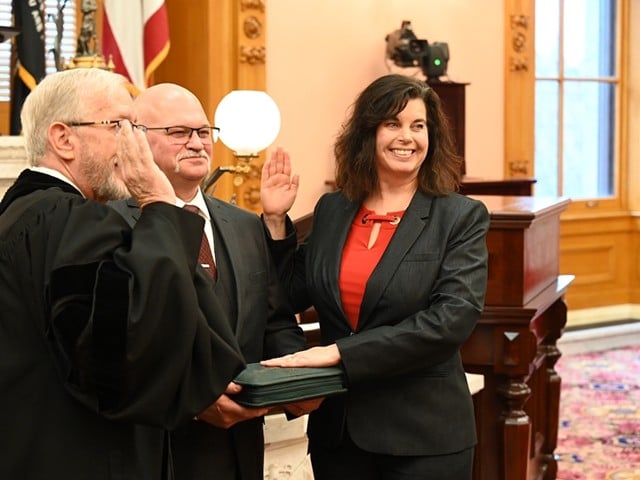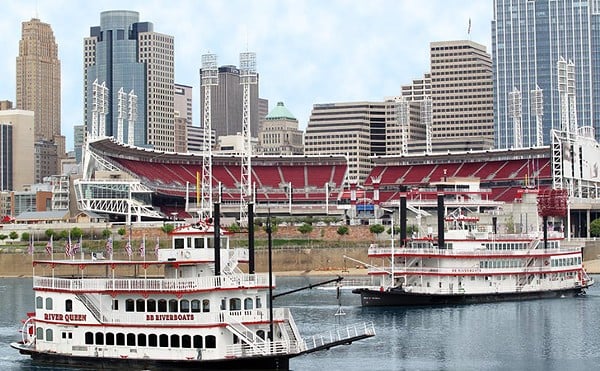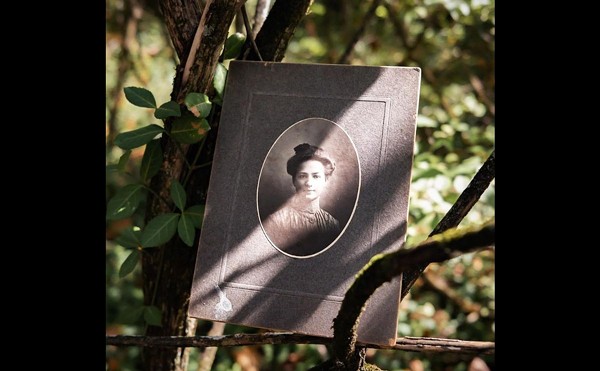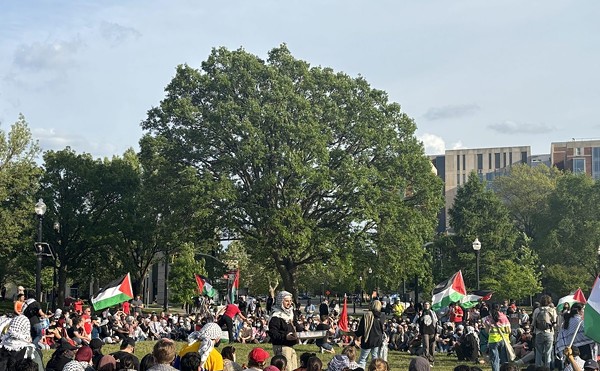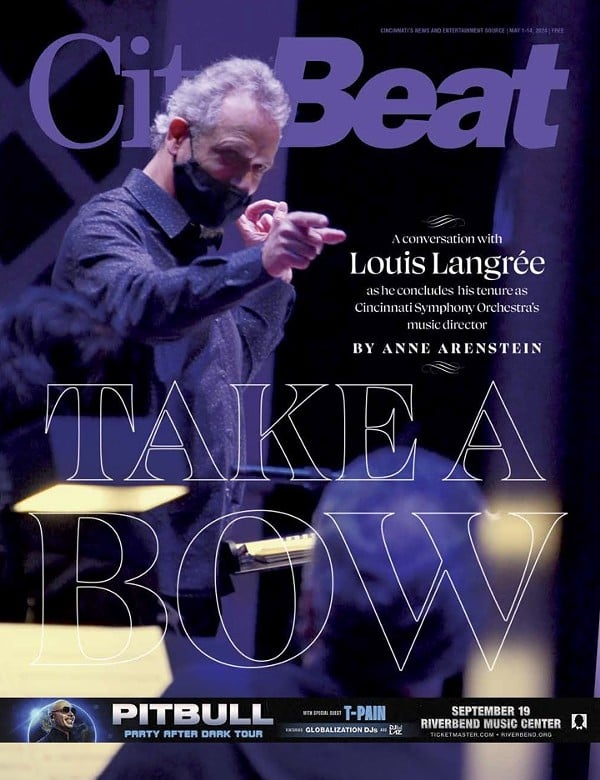Lawyers for Amazon — who are responding to allegations of unfair treatment of unionizing employees at the company's largest air hub in Hebron, Kentucky, known as KCVG — successfully argued to a federal administrative judge that Amazon needs time to review documents requested by the NLRB alongside the Transportation Security Administration (TSA).
Because Amazon's air hub at KCVG is an airport, it must comply with federal TSA law about sharing sensitive security information, or SSI as it's called in court documents. In a motion presented on April 23, Amazon's lawyers asked for a protection order to give the company time to seek guidance from TSA.
"Amazon is responsible for the security at a portion of the CVG airport, and Amazon must comply with the specific TSA Regulations governing airport security," reads the motion from Amazon's lawyers.
The NLRB issued a consolidated complaint against Amazon on March 5, alleging Amazon retaliated against several KCVG employees for union organizing, required employees to attend anti-union presentations and tracked employees who were engaging in union activity, among other complaints. One of the incidents mentioned in the complaint is a union rally on March 18, 2023. During that rally, Amazon security blocked off protestors from the entrance to KCVG and escorted out visiting union organizers from Amazon's Staten Island warehouse, including Amazon Labor Union (ALU) president Chris Smalls.
Amazon's lawyers said discussing this day on the record during proceedings would compromise security at the facility.
The NLRB issued a consolidated complaint against Amazon on March 5, alleging Amazon retaliated against several KCVG employees for union organizing, required employees to attend anti-union presentations and tracked employees who were engaging in union activity, among other complaints. One of the incidents mentioned in the complaint is a union rally on March 18, 2023. During that rally, Amazon security blocked off protestors from the entrance to KCVG and escorted out visiting union organizers from Amazon's Staten Island warehouse, including Amazon Labor Union (ALU) president Chris Smalls.
Amazon's lawyers said discussing this day on the record during proceedings would compromise security at the facility.
"The General Counsel’s allegations concern a planned protest that was held on March 18, 2023 on or near Amazon’s private property. Amazon’s response to the planned protest implicates Amazon’s security requirements and protocols at the CVG airport and thus implicates SSI," Amazon's motion reads.
General council for the Amazon workers from the NLRB disagreed, calling Amazon's attempts to delay the hearing a stalling tactic.
Judge Ira Sandron did not accept the motion or strike it down, but he did agree with Amazon that guidance from TSA was needed to make sure the proceedings don't pose a security issue.
General council for the Amazon workers from the NLRB disagreed, calling Amazon's attempts to delay the hearing a stalling tactic.
"Respondent’s inexcusable delay in raising this claim to either the [NLRB] or TSA in advance of the trial leads to but one conclusion - that respondent’s arguments are largely specious and advanced for purposes of delaying the hearing," reads the NLRB's response to Amazon's motion.
Judge Ira Sandron did not accept the motion or strike it down, but he did agree with Amazon that guidance from TSA was needed to make sure the proceedings don't pose a security issue.
"Going forward with testimony could violate federal security laws," Sandron said during Wednesday's proceedings.
The trial will be on pause until Aug. 19, 2024, with the expectation that Amazon will alert the court if TSA has completed its assessment early.
Amazon employees and union organizers are frustrated with the judge's decision.
"I'm aggravated. Amazon is just delaying this and wasting everyone's time," said Jordan Martin, KCVG ramp associate and supporter of the union drive.
ALU-KCVG organizer Elan Axelbank told CityBeat that Amazon's push to delay proceedings is a sign the company is feeling the heat from employees.
"The way Amazon acted in that courtroom this week shows that they're scared of workers' power at KCVG," Axelbank said. "It shows that they actually know that they violated the law."
Amazon's lawyers declined to comment on the case, and Amazon corporate did not respond to CityBeat's request for comment by press time.
The trial will be on pause until Aug. 19, 2024, with the expectation that Amazon will alert the court if TSA has completed its assessment early.
Amazon employees and union organizers are frustrated with the judge's decision.
"I'm aggravated. Amazon is just delaying this and wasting everyone's time," said Jordan Martin, KCVG ramp associate and supporter of the union drive.
ALU-KCVG organizer Elan Axelbank told CityBeat that Amazon's push to delay proceedings is a sign the company is feeling the heat from employees.
"The way Amazon acted in that courtroom this week shows that they're scared of workers' power at KCVG," Axelbank said. "It shows that they actually know that they violated the law."
Amazon's lawyers declined to comment on the case, and Amazon corporate did not respond to CityBeat's request for comment by press time.
Employees file a 10(j) injunction
Travis Lavenski, a lawyer representing ALU-KCVG, has filed a 10(j) federal injunction to require Amazon to stop any unfair labor practices while the NLRB case is being litigated.
“Immediate injunctive is necessary for employees to effectively enjoy their rights to form a union in their workplace,” Lavenski said.
The 10(j) injunction is one of the only tools the NLRB has to actually require companies to change their behavior, as Congress hasn’t given the federal agency much authority to penalize employers for violating workers’ rights to unionize. Because NLRB cases can take months or even years to resolve, the 10(j) injunction gives organizing employees a fairer shot at collective bargaining while the case plays out in court.
“Absent an injunction, Amazon will continue to effectively block workers’ access to the most effective venue to communicate with coworkers about the benefits of unionizing; to discriminate against workers who are vocal about the union; and to spread fear amongst those who might otherwise be amenable to the prospect of unionizing,” Lavenski said.
“Immediate injunctive is necessary for employees to effectively enjoy their rights to form a union in their workplace,” Lavenski said.
The 10(j) injunction is one of the only tools the NLRB has to actually require companies to change their behavior, as Congress hasn’t given the federal agency much authority to penalize employers for violating workers’ rights to unionize. Because NLRB cases can take months or even years to resolve, the 10(j) injunction gives organizing employees a fairer shot at collective bargaining while the case plays out in court.
“Absent an injunction, Amazon will continue to effectively block workers’ access to the most effective venue to communicate with coworkers about the benefits of unionizing; to discriminate against workers who are vocal about the union; and to spread fear amongst those who might otherwise be amenable to the prospect of unionizing,” Lavenski said.
The NLRB has not yet decided to take on the injunction case, but Lavenski told CityBeat that the NLRB sometimes pursues these injunctions before unions request them in order to protect workers.
“[The Labor Board] let us know that they are considering it, and that they were also considering it on their own as well, just because it's such a big case,” he said.
“[The Labor Board] let us know that they are considering it, and that they were also considering it on their own as well, just because it's such a big case,” he said.
Why the Supreme Court matters in this case
The 10(j) injunction is currently in the legal spotlight, but not because of Amazon. Starbucks has asked the United States Supreme Court to raise the bar for federal circuit courts who grant 10(j) injunctions after a lower court denied the company's appeal of a 6th Circuit ruling that required Starbucks to rehire seven employees who were allegedly fired for union activity. The injunction allowed employees at the Starbucks in Memphis to hold a union election while the NLRB case continued. Baristas voted 11 to 3 to join Workers United, the Starbucks employees union.
Lawyers for Starbucks argue that the federal district courts have too low a threshold for granting 10(j) injunctions, saying such injunctive relief should be reserved only for extreme cases. Starbucks wants the justices to impose a singular, rigorous standard across all lower courts.
“If Starbucks gets its way, it will probably be a little bit harder to get 10(j) relief,” Lavenski said. “Which, I mean, it already is very difficult to get that injunctive relief.”
The justices’ decision could have ripple effects for unions across the country, including KCVG, where employees are fighting for higher wages, among other demands.
Background on the union effort at KCVG
Employees at KCVG began union efforts in November 2022 after upper management announced there would be no peak pay for the 2022 holiday rush, but mandatory overtime would be required. Amazon’s gross profit for the 2023 fiscal year was $256.202 billion, an 18.52% increase year-over-year for the world’s largest retailer.
Employees pushing for a union at KCVG are asking for a standard $30-per-hour wage, improved health benefits, on-site translation for non-native English speakers, union representation at disciplinary hearings and more.
Employees pushing for a union at KCVG are asking for a standard $30-per-hour wage, improved health benefits, on-site translation for non-native English speakers, union representation at disciplinary hearings and more.

